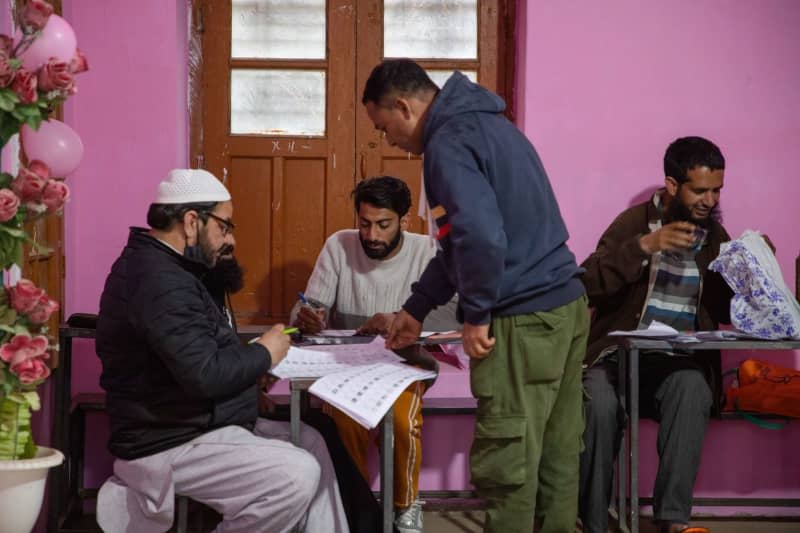Voters in India went to the polls on Friday in the first phase of a massive six-week election that will see seats in India’s lower house of parliament and a new term for India’s prime minister. Narendra Modi at stake.
The latest opinion polls show Modi’s Hindu nationalist Bharatiya Janata Party (BJP) far in the lead. Modi, 73, is campaigning for a third five-year term as leader of the country.
According to the Election Commission, voting began in 102 of the total 543 constituencies. There are 36 states and federally administered territories in the world’s largest democracy.
Voting can continue until June 1 in the seven-phase elections, the results of which are expected on June 4.
About 970 million people are eligible to participate in more than 1 million polling stations across the country. India is home to approximately 1.4 billion people.
The logistics required to organize elections on an Indian scale are enormous, which is further complicated by India’s diverse geography.
Millions of election workers and security forces will use trucks, helicopters, boats and even elephants to transport ballot boxes to all corners of the country: the Himalayas, deserts, sprawling metropolises and remote island villages.
India’s lower house, the Lok Sabha or House of the People, has almost 550 seats. The BJP currently has a majority.
Modi remains popular in India, and the campaign of the BJP – which translates as Indian People’s Party – has focused heavily on his personality and charisma.
The political opposition is relatively weak and divided. Opposition leader Rahul Gandhi’s Congress Party, which once dominated Indian politics after independence from Britain in 1947, now controls just three of India’s 28 states.
Critics have accused Modi and the BJP of suppressing the opposition ahead of the elections.
Delhi Chief Minister Arvind Kejriwal has been taken into custody on corruption charges. Bank accounts of the opposition Congress Party have been frozen due to alleged tax debts.
“There is no democracy in India anymore,” Gandhi said recently.
Under Modi, India has become the world’s fifth-largest economic power and is also playing an increasingly important political role as a counterbalance to China.
Modi has invested heavily in modern infrastructure projects such as roads, high-speed rail and airports. But economic growth is not evenly distributed.
Unemployment remains high and poverty is widespread, with many struggling to meet basic needs. According to the World Bank, gross domestic product per capita is about $2,000 per year.
Hinduism, the religion of about 80% of India’s population, has moved to the center of national identity. Opponents warn that religious minorities, such as the country’s 200 million Muslims, are becoming second-class citizens and subject to increasing discrimination.
Modi’s election campaign has further fueled religious tensions. At the start of his campaign, Modi inaugurated a Hindu temple on the site of a centuries-old mosque destroyed by Hindu fanatics in 1992.
“With hardliners in power, Hindu mobs have been given a virtual license to kill Muslims and ideological opponents,” wrote Ashoka Mody, a professor at Princeton University in the US.
Modi has also concentrated political power in his office, while observers in India and abroad say he has undermined the independence of public institutions such as the judiciary and the media.
However, social programs such as efforts to provide free toilets to millions of people have helped Modi gain popularity among voters, said Ian Hall of Australia’s Griffith University.
The prime minister’s frequent references to his own humble background as the son of a tea seller may also enhance his appeal.
“He just understands us,” Sonu Kumar, a 25-year-old food vendor in the capital Delhi, told dpa, echoing what many Indian voters think.







